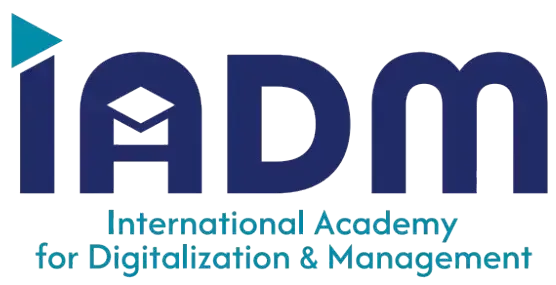Certified. Acknowledged. International.
Our Latest Blogs
Develop as a Leader by Mastering Ethical AI and Compliance Skills
Develop as a Leader by Mastering Ethical AI and Compliance Skills
In today’s digital landscape, leadership is no longer defined solely by strategic thinking or people management. The rapid rise of Artificial Intelligence (AI) and automation has transformed how decisions are made, data is processed, and teams are managed. To stay relevant and respected in this evolving world, you need to develop as a leader who not only understands AI but also navigates its ethical and compliance challenges responsibly. Ethical awareness and regulatory understanding are now just as critical as technical skills. Leaders who combine these qualities earn trust, inspire innovation, and ensure their organizations move forward with integrity.

Understanding Ethical AI: Beyond the Buzzwords
AI can analyze data faster than humans, automate complex tasks, and predict outcomes with stunning accuracy. But behind its efficiency lies a responsibility. Ethical AI refers to designing, implementing, and managing AI systems in ways that are fair, transparent, and aligned with human values. This includes ensuring that algorithms do not discriminate, that data privacy is respected, and that decision-making remains accountable.
As you develop as a leader in the AI era, understanding these principles is essential. Ethics in AI is not about restricting technology; it is about guiding it toward positive impact. When leaders adopt this mindset, they help their organizations build systems that are not only smart but also socially responsible.
Why Compliance Matters for Every Leader
Ethical considerations go hand in hand with compliance. Regulations such as the EU’s General Data Protection Regulation (GDPR) and new AI governance frameworks are shaping how data and machine learning are used globally. Ignoring these standards can lead to more than legal risks—it can damage an organization’s reputation and erode public trust.
To develop as a leader today means taking compliance seriously. A strong understanding of data protection laws, privacy rights, and responsible data management shows accountability and foresight. Leaders who integrate these principles into their strategies help prevent misuse of information and create a culture of transparency within their teams. Compliance should not be viewed as a hurdle but as an opportunity to strengthen credibility and resilience.
Integrating Ethical AI into Leadership Strategy
Ethical AI leadership requires more than technical awareness. It demands a balance between innovation and governance. When you integrate ethical and compliance considerations into your leadership strategy, you ensure that every technological advancement aligns with your organization’s core values.
This starts by fostering collaboration between technology experts, legal professionals, and leadership teams. Encourage open discussions about how AI tools are used, what data they rely on, and how decisions are made. Implement policies that make AI systems explainable to stakeholders. Transparency is key. It helps build confidence among employees, clients, and partners who rely on fair and accurate decision-making.
Leaders who prioritize ethical design also cultivate a healthier organizational culture. They encourage employees to question biases in data and to consider the long-term implications of technological solutions. This forward-thinking approach turns compliance from a static checklist into a living practice of accountability.
The Human Element of Ethical Leadership
AI may handle data, but leadership remains deeply human. A leader’s role is to interpret, guide, and set moral direction. As organizations become more data-driven, leaders must bring empathy and judgment into the equation. This balance ensures that decisions made with AI still reflect the organization’s mission and values.
When you develop as a leader who values ethical AI, you empower your teams to act with integrity. This influence extends beyond technology—it shapes how people communicate, collaborate, and innovate. Ethical leadership reinforces trust, and trust is the foundation on which sustainable organizations are built.
Leaders who embrace this perspective are better prepared to manage the risks that come with new technologies. They do not just react to regulations; they anticipate them. They understand that compliance is not a one-time effort but an ongoing commitment. By modeling this mindset, they encourage their teams to treat ethics as part of everyday decision-making rather than an afterthought.
The Global Impact of Responsible AI Leadership
AI’s influence is global, and so is the responsibility that comes with it. Companies and institutions around the world are integrating AI into their operations. Leaders who understand the international dimension of ethical AI and compliance are better equipped to build partnerships across borders.
For instance, an understanding of data protection laws in different regions helps leaders navigate international markets more effectively. It also allows them to create policies that respect cultural and regulatory differences. This global perspective strengthens both credibility and competitiveness.
To develop as a leader in this global environment means recognizing that ethics and compliance are not confined to legal frameworks—they are part of a universal language of trust. When your leadership reflects this awareness, you stand out as someone capable of driving innovation responsibly.
Continuous Learning: The Path to Long-Term Leadership
AI, data protection, and compliance frameworks evolve constantly. What is ethical or compliant today may require reevaluation tomorrow. The most effective leaders commit to continuous learning. They stay updated with new laws, attend specialized training, and engage in professional development programs that keep them ahead of change.
Continuous learning is not about collecting certifications; it is about maintaining curiosity and adaptability. These traits enable leaders to make informed choices in uncertain times. As you deepen your understanding of ethical AI and compliance, you gain the confidence to lead teams through digital transformation with integrity.
Advance Your Leadership Journey with IADM
At IADM Academy, we empower professionals and organizations to grow with globally recognized CPD-certified programs in AI, digitalization, and management. Our expert-led courses combine innovation, compliance, and leadership to help you navigate the evolving world of technology with confidence. Whether you aim to strengthen your ethical AI knowledge, enhance data governance skills, or build strategic digital leadership, we provide practical and internationally accredited learning experiences. With us, you gain more than a certificate—you gain the mindset, vision, and skills to lead responsibly in the age of AI and shape a sustainable digital future.
Conclusion
To thrive in the modern era, you must do more than understand technology—you must guide it ethically and responsibly. When you develop as a leader by mastering ethical AI and compliance skills, you create a foundation of trust that strengthens your team, your organization, and your community. The future belongs to those who lead with purpose, integrity, and awareness. By blending innovation with ethics, you do not just adapt to change—you shape it for the better.

Jasmin R.

The Data Protection and AI Governance course was practical, up-to-date, and taught by experienced professionals. I gained skills I could apply immediately, and within months, I landed a better role with more responsibilities!

Serena A. Wagner

Thanks to IADM’s Neurodiversity course, I now truly understand how to support employees with ADHD. I can identify their strengths, navigate challenges, and create a more inclusive work environment. The course was practical, insightful, and easy to apply

Sebastian Köhler

I took the Cybersecurity Awareness course at IADM and was genuinely impressed by how closely it reflected real-world challenges. From phishing risks to data protection, every module was hands-on and immediately applicable. IADM gave me the confidence!
IADM Ltd
Suite 10, Capital House
61 Amhurst Road
London
E8 1LL
United Kingdom
Main Line (Phone & WhatsApp):
+44 7347 588566
Managing Director/Founder: Nurgül Aslan MBA, M.Sc.
Germany/Europe

